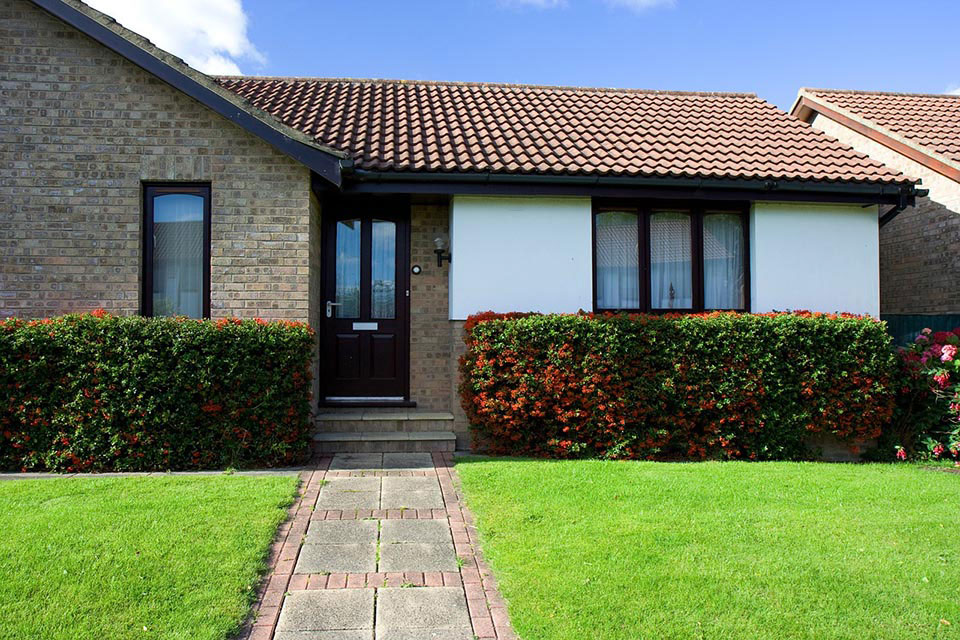
The recent surge in foreclosed property has presented real estate-buying public with a lot of opportunities to scoop up property at bargain rates. Some of these foreclosures are once-in-a-lifetime chances to purchase homes for a fraction of their normal cost, however there are a lot of things to look out for when scanning the foreclosures in your area for a good deal.
Foreclosures are typically sold as-is, meaning that the buyer is responsible for all repairs and maintenance problems. Compounding that issue is the fact that a lot of foreclosed houses are sold in public auctions without the buyer even getting a chance to survey the property before making a bid. Because of this stipulation, many buyers of foreclosed properties may make purchases without realizing the amount of work that needs to be done, and they can quickly be in over their head.
Before you purchase a foreclosed home, it's usually best to get as much information as possible about it, prior to making any major decisions. If you find yourself in a scenario where you have the option to gather some basic knowledge about the house before buying, remember to consider the following things:
- Find out how old the house is. This should be one of the first questions you ask when considering purchasing a foreclosure. Try to stay away from any houses that are older than 50 years old, as they are more likely to have maintenance problems related to plumbing and electricity. While you may save yourself a great deal of money on the purchase by buying a foreclosed home, you may run into a number of problems with the home once you move in, problems that can potentially cost thousands of dollars to repair, thus canceling out the money that you saved on the initial purchase price.
- Inquire about the history of the home and if it has been vacant for an extended period of time. Many foreclosed houses are left vacant for some period of time, especially if the previous owners were evicted or forced to vacate their property. When homes are left vacant with all utilities cut off for even a few weeks, problems can ensue. There is also the possibility of other damage that can occur when homes are left vacant. Some of the most common problems that you may encounter with homes that have been left vacant for long periods of time include vandalism, squatters, rodent or insect infestations, or frozen pipes, especially if the home has been left vacant during the cold winter months.
- Is there anything important missing from the house? If the home's previous owners were forced to quickly vacate the home, they may choose to take with them anything they can, including valuable items like air conditioning units and water heaters. If it's possible, try to have the home looked at by an inspector before you purchase it. While this option will not typically be available for all foreclosed properties, it's definitely your best course of action if it is allowed.
- Avoid bidding on foreclosed properties in auctions. When foreclosed homes are placed up for auction to the highest bidder, you typically won't be able to view the property or even visit it before making your bid. This is problematic for numerous reasons, specifically for the fact that you will have no idea what the house looks like, what condition it's in or if there are any major problems with it before you place your bid. Because of this, you could be left bidding on a property that is not fit to live in and requires expensive repairs and remodeling.
- Whenever possible, buy from a bank. Many foreclosed homes are owned by a bank, or "real-estate-owned". This means that the home is owned by the bank and that the bank has paid off any outstanding liens or back taxes so you won't get stuck having to pay them if you buy the home. Also, you're allowed to visit and inspect foreclosed homes that are owned by a bank, so you'll be able to survey the property for any damage and hire your own inspector to make sure that everything is up to code and regulation before you make an offer to purchase it.
- Get pre-approved before searching for a foreclosed home. Since the foreclosure market is extremely competitive and properties can be snatched up fairly quickly, it's a good idea to get pre-approved by a lender before searching for a home, that way if you find one you like, you can immediately put in an offer and get the process rolling, rather than waiting for the bank to approve you for a loan and potentially missing out on the property.
- How does the home look? Last, but certainly not least, try to inquire about the look of the house. Does it look like it is in a state of disrepair or deterioration? Is there noticeable damage? Finding out this information prior to purchasing can save you a lot of money and headaches in the long run.